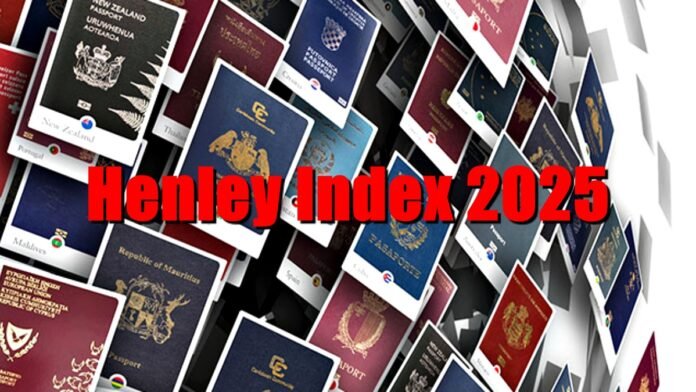
Key Points:
- US passport falls to 12th place on Henley Passport Index 2025, its first exit from the top 10 in two decades.
- Singapore retains the world’s most powerful passport with visa-free access to 193 countries.
- Indian passport climbs 8 ranks to 77th position with access to 59 destinations.
- Brazil, China, and several Asian nations tightened visa rules for Americans, driving the US decline.
- British passport also weakened, slipping from 6th to 8th place, while China surged from 94th (2015) to 64th.
New Delhi: For the first time in 20 years, the United States passport has dropped out of the top 10 most powerful passports globally, according to the latest Henley Passport Index 2025, released on October 14. The American passport now ranks 12th, tied with Malaysia, offering visa-free or visa-on-arrival access to just 180 out of 227 destinations worldwide.
Once crowned at the number one spot in 2014, the US passport has witnessed a consistent decline over the past decade. The latest drop from 10th to 12th position marks a significant milestone in what experts describe as a changing global power landscape.
Singapore Leads Global Rankings
Singapore’s passport continues to dominate the Henley Passport Index, granting its citizens visa-free entry to 193 countries. South Korea ranks second with access to 190 destinations, while Japan follows closely at 189 destinations. European nations, including Denmark, Finland, France, Germany, Ireland, Italy, and Spain, share the third position with 189 visa-free destinations.
Why Did the US Passport Weaken?
The decline of the US passport stems from multiple diplomatic setbacks and stricter visa regulations imposed by several nations. Brazil ended visa-free entry for Americans in April 2025 due to a lack of reciprocity, marking the beginning of the downward trend. China excluded the United States from its rapidly expanding visa-free program, which now covers 76 countries—30 more than the US.
Papua New Guinea and Myanmar introduced new restrictions, while Somalia’s launch of a new eVisa system and Vietnam’s decision to exclude the US from its latest visa-free additions delivered the final blow, pushing it out of the top 10.
Christian Kaelin, Chairman of Henley & Partners, stated that the decline represents more than just a ranking shift. It reflects a fundamental change in the global power landscape, where countries embracing openness and diplomatic cooperation are advancing, while those maintaining rigid policies are falling behind. Former diplomat Anne Pforzheimer echoed this sentiment, noting that America’s inflexible policy approach is directly reflected in its passport’s weakening strength.
Indian Passport Makes Impressive Gains
India’s passport ranking has improved significantly, jumping eight spots to 77th place in 2025 from 85th in 2024. Indian passport holders now enjoy visa-free or visa-on-arrival access to 59 countries, marking the nation’s strongest-ever leap in the index.
Factors Behind India’s Improvement
India’s enhanced passport strength is attributed to multiple strategic initiatives. The country signed visa-free or visa-on-arrival agreements with nations including the Philippines, Sri Lanka, Malaysia, and Thailand. India’s growing economy and strengthened diplomatic relationships have encouraged countries to ease visa regulations for Indian travelers.
The expansion of digital access through e-visas and visa-on-arrival systems, which are counted in the Henley Index, has played a crucial role. Additionally, increasing tourist arrivals and trade volumes from India have prompted several countries to grant visa exemptions, recognizing India’s rising global influence.
British Passport Also Declines
The United Kingdom has seen its passport ranking slip from 6th to 8th place in 2025, a significant drop from its first-place position in 2015. The British passport currently offers visa-free access to 186 destinations.
China’s Remarkable Ascent
China has demonstrated one of the most dramatic improvements in passport power over the past decade. Rising from 94th position in 2015 to 64th in 2025, China has gained visa-free entry to 37 new countries during this period. Chinese passport holders can now access 76 countries without prior visas, surpassing the US by 30 destinations.
China’s success is attributed to strategic visa-free agreements signed with Russia, Gulf nations, several South American countries, and select European nations, reflecting Beijing’s expanding diplomatic reach and economic influence.
The Henley Passport Index, based on exclusive data from the International Air Transport Association (IATA), ranks 199 passports worldwide according to the number of destinations their holders can access without a prior visa. The shifting rankings underscore how diplomatic relationships, economic power, and international cooperation directly impact global mobility in 2025.







































